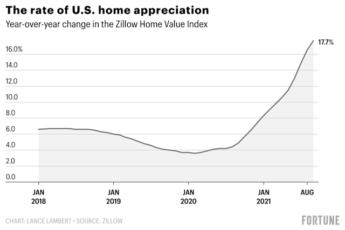There have been several complaints about Redfin and the real estate industry. The company was accused of submitting lowball offers to sellers and was subsequently not taken seriously by other agents. The Kelman agency, however, has closed 89 transactions and has returned more than $900,000 in rebates to its customers. While traditional real estate agents have been vocal about their displeasure with Redfin, Representative Maxine Waters has not bought Kelman’s complaints.
Redfin is a real estate agency
When it comes to home buying, the traditional real estate agent is still an important part of the process. While the traditional agency will still play an important role, buyers have gained more control in recent years. Redfin, which calls itself a «real estate technology company,» is reshaping the home-buying process around the buyer. This makes Redfin a different kind of company than most.
The company has been a popular choice for many people looking for a place to live. But the service has had its share of controversy. The company has long aspired to become a national brand, but it’s been difficult to expand into new markets because of its labor-intensive business model. As a result, the company has taken a while to prove its worth to investors. However, with its latest capital infusion, the company is expanding quickly and currently serves over 70 markets.
For example, in Australia, homes are sold through auctions, which is difficult for a conventional real estate agent. Redfin has an audience of potential buyers, which allows them to experiment with different approaches. The company raised $70 million in December to fund expansion. It raised an additional $95 million in earlier rounds. Its expansion plans may include offering loans to help buyers purchase a home. Redfin will also make the closing of the deal digital.
In 2012, Redfin began to beef up their service by hiring 50 more real estate agents. They claim that their agents can sell homes five days faster than a traditional real estate agent. Additionally, Redfin says that sellers earn an average of $2,800 more per sale using their platform, compared to the traditional real estate agent. This service also has an advantage of saving sellers money, since the buyer traditionally pays for closing costs, such as taxes, title insurance, appraisal, and lender fees.
It offers a 1.5% listing fee
Currently, Redfin charges a 1.5% commission for listing homes for sale. However, the company has announced that it will offer a 1% commission starting in California. With this new fee structure, sellers can potentially save hundreds of dollars in commission costs. To find out how much you could save, check out Redfin’s breakdown of fees charged to buyers and sellers. This fee is comparable to the amount charged by many traditional brokerages, such as Jovio.
The company is expanding its 1% listing fee to 18 markets. As a result, roughly 80 percent of its customers will now pay only one percent of the final sale price. Redfin originally tested the fee at 1% in a few markets including Chicago, Seattle, and Washington, D.C. However, it plans to continue to charge 1.5 percent for listing homes in the rest of the country. So, what should you do if your home is listed with Redfin?
A 1% listing fee is still significantly cheaper than 2.5-3%, but it should be weighed against the cost of hiring a traditional agent. Redfin agents are often more effective, and you may find that your home is priced incorrectly. If you’re concerned about this, you can opt for a Redfin concierge service, which includes house cleaning and professional staging. This service costs $5,000 more than the basic package, so most sellers will opt for the 1.5% listing fee and pay a la carte for additional services.
Another way to compare the pricing structure of Redfin with a traditional agent is to consider Partner Agents. These agents partner with Redfin in order to reach a larger audience. Partner Agents do not pay Redfin listing fees and are not subject to refunds if the home doesn’t sell for the asking price. Partner agents may even have some homes listed below the minimum price, so they could offload customers.
It offers a concierge service for sellers
The Redfin concierge service has a few advantages over traditional real estate agents. First of all, a concierge will help a seller with a wide range of home improvements. This plan will cover paint colors, staging, furniture placement and flow, lighting and fixtures, curb appeal, and more. The concierge will also source contractors in the area and oversee the work throughout the project. The Redfin concierge fee for this service is 2% of the listing price. This service is available in select markets.
The concierge service is only available for homes over $500k. While it is true that the cost for this service is higher, there are some other advantages. The concierge service offers a higher-quality service for a small fee. Additionally, it will save sellers money, especially in a hot market. But the concierge service isn’t without its drawbacks. Some users report that the agents are less responsive and the process takes longer than expected.
In the end, the Redfin concierge service provides a premium selling experience compared to a typical real estate brokerage. Although you won’t receive active support from a traditional agent, you can still expect to get the same services. A few additional benefits are listed below. One of these is the inclusion of professional staging and house cleaning in the Concierge service. It also eliminates the need to pay a buyer’s agent commission.
Another great benefit of the concierge service is the increased revenues for Redfin. The company receives commissions from mortgage referrals. Although there isn’t a formal definition of a real estate concierge, the term refers to a pre-listing service. Some companies offer financial assistance to sellers to improve the appearance of their homes or stage them to increase their appeal. You can find reviews online regarding the Redfin concierge service.
It is a good option for house flippers
There are many reasons to use a house flipping app. They help you find foreclosures, houses that are on the market, or properties that are going to auction. Additionally, they can help you analyze your expenses and costs. House flipping apps can also help you find the right property for your needs. Here are five reasons why Redfin is a great choice for house flippers. Let’s explore them!
One of the main complaints of Redfin users is that the agents are not helpful enough. The company responds to complaints in a polite way. Some sellers have received lower offers from Redfin than they expected, and others have received lower offers than they initially thought. However, Redfin is one of the few online platforms where customers can speak directly with the agent who has helped them sell their house.
Another reason why Redfin is a good choice for house flippers is that it helps house flippers sell more houses than the average realtor. Redfin matches sellers with local agents with low commissions, and the Full Service option costs only 1% of the cost of listing your home. This option also includes premium placement on the Redfin website. However, these fees are subject to minimums, and the final amount may vary depending on your market.
Another reason to use Redfin is the ability to filter properties based on location and price. You can search for properties by neighborhood or zip code to narrow down your options. The site also has a Property Evaluator that will help you compare different properties and compare financial aspects. You can also narrow down your choices by entering the property’s estimated timeline and price range. With all this information, you can decide whether to sell the property quickly or hold on to it.
It isn’t disrupting the real estate industry like Uber or ABnB
Unlike ABnB and Uber, which are disrupting the world’s transportation industry, Redfin isn’t doing the same thing in real estate. In 2007, Glenn Kelman called real estate the «most screwed-up industry in the United States,» and vowed to transform the industry into something like eBay or Amazon. Redfin’s initial model charged homebuyers a fraction of what a conventional real estate agent would charge, and they were forced to give consumers less access to human agents.
While Redfin has a backlog of potential users, it isn’t disrupting the real estate business in a big way. While it would have made home-buying easier, it wouldn’t have fundamentally changed the industry. Uber, for instance, has made ordering takeout much easier, and Lyft streamlines cab ordering. Similarly, a company like Amazon is providing a cheaper alternative to driving to the mall.
A recent study found that discount real estate brokerages provide services that buyers actually need without charging for services they don’t need. Both companies rely on technology and are transforming the industry by learning how to do more with less. As a result, they’re applying the low-cost, higher-value principle to real estate. The result? Higher consumer satisfaction and lower costs.
In a nutshell, Redfin isn’t disrupting real estate the way that Uber and ABnB have done. The latter two have radically altered the way consumers search for homes, but Redfin has only been around since the beginning of the recession. It may still be the only technology-powered real estate brokerage, but Wall Street has realized that technology will change the industry. Private investment in real estate technology has risen from $28 million in 2008 to $3 billion today, and most of the money went to disruptive brokerages and ad-driven listing-search sites. However, the largest traditional real estate brokerage has lost 60% of its value in the boom, and ad-driven listing-search sites were favored.
There are several concerns about the impact of Airbnb on real estate, including how it affects rents and property values, and what it may mean for the COVID-19 pandemic. While there is no evidence to support a negative impact on rents, Airbnb does bring in more revenue for cities, mainly through rental fees and the money from renters. However, it should be noted that about three-quarters of its listings are not in traditional tourist areas. That means that Airbnb is putting money into communities that would otherwise be ignored by the hospitality industry.
Impact of Airbnb on housing market
In some areas, Airbnb is increasing house prices and driving up rental rates, according to a study conducted by INFORMS. Another study found that the presence of Airbnb listings in a particular zip code increased house prices by 0.018%. Both measures are related, but the exact impact of Airbnb on the housing market will depend on the location. The study found that the presence of Airbnb listings in a specific zip code will affect house prices and rental rates differently.
In a study published last year, economists at Yale University found that the presence of Airbnb impacted rents by one percent in New York City, a study of 115 metropolitan areas. The impact of the company on housing prices was not uniform; some cities experienced larger reductions in local rental supply than others, but not necessarily a larger number of landlords switching to Airbnb. The study also found that Airbnb has an artificially driven up housing prices and created a shortage of housing in many cities.
As a result of the popularity of Airbnb, it has merged the short-term and long-term rental markets and made it easier for absentee landlords to rent out their units. Some landlords are converting their properties to short-term rentals to avoid higher costs and rents, which has pushed up prices. The impact on housing prices would be minimal if the renters were able to increase the utilization of their housing units and earn more money.
The study also included a model that simulated a counterfactual scenario without Airbnb. The study also included data on housing prices, rents, and the number of Airbnb hosts in each metropolitan area. The researchers used this information to determine a structural model for property owners and evaluated existing laws and regulations. While these findings aren’t conclusive, the study highlights the impact of Airbnb on the housing market and its impact on rent.
Critics have been quick to blame Airbnb for a lack of rental stock in some parts of the country. However, it is important to note that Airbnb isn’t solely to blame for the shortage of housing stock. Rather, Airbnb may be providing landlords with a backdoor out of an impossible situation. With zero mortgage relief, strict compliance legislation, and a lack of government capacity to protect tenants, landlords are being squeezed by the combination of the two.
Those in charge of cities and counties have also seen a positive effect. In Sydney alone, over 30,000 guests stayed in Airbnb homes in 2012-2013, creating unique memories for travelers. In Barcelona, Airbnb conducted a study in early 2014 that showed that in just one year, the presence of Airbnb properties contributed to more than EUR100 million in economic activity and supported more than 4,000 jobs. For cities like San Francisco, Airbnb has a profound impact on the housing market, bringing more money into communities that aren’t traditionally home to large numbers of people.
Impact of Airbnb on rents
The impact of Airbnb on rents is small. The number of listings per unit is only 0.18 percent higher if they increase in number. Doubling the number of listings would only increase rents by 2 percent. According to a study by Barron et al. presented at an American Economic Association meeting in January, the impact of Airbnb on rents is «zero.» This means that despite the small impact of Airbnb, cities can easily offset it by building more housing.
According to the study, an increase in the number of Airbnb listings corresponds to a 0.18% increase in housing prices or rental rates in a specific ZIP code. Further, the increase in rents was larger in ZIP codes that have a large share of nonowner occupied housing units. Further, Merante and Horn found evidence that the impact of Airbnb on rents is related to a shift by landlords from owner-occupied to non-owner-occupied homes.
The effect of Airbnb on rents is not yet completely clear. However, a study by the University of Southern California found an association between the number of Airbnb listings and increases in rents in zip codes with a low number of owners. The researchers concluded that the impact of Airbnb was most pronounced in cities where long-term rentals are scarce and the number of listings increased dramatically. As a result, rents and house prices increased as a result of the increased use of Airbnb.
Although the presence of Airbnb is responsible for rising rents and a lack of rental stock in certain parts of the world, this phenomenon is also a backdoor escape for landlords. They may be able to exploit the Airbnb phenomenon as a means of escape from a seemingly impossible scenario — zero mortgage relief, long compliance legislation, and lack of government capacity. In the U.K., cities and states are increasingly regulating this activity, but it remains unclear how this new phenomenon will affect rental prices in many cities.
A recent study published in The American Journal of Sociology found that the presence of Airbnb units had a moderate impact on long-term rental supply. The presence of such units, however, expands the rental housing market, which could benefit low-income landlords. To address these socially inequitable outcomes, the authors suggest introducing a new tax on Airbnb units to prevent people from switching to this type of rental property.
The report noted that rents in the top 20 neighborhoods with the highest number of Airbnb listings were nearly double the citywide average. Activists have claimed that the services of Airbnb have deprived scarce housing. However, the report also stated that Airbnb units are being rented for only eleven days a month, or a mere 2.5 percent of the year. Therefore, it is estimated that there are currently 5900 vacant units in New York City.
Impact of Airbnb on COVID-19 pandemic
The COVID-19 pandemic has wreaked havoc on global travel, and the impact on companies like Airbnb is far-reaching. As a result, the number of active Airbnb properties in China fell from 700 thousand in January to 599 thousand in March 2020. However, the company is able to cope with the effects of the virus by making changes in their rental policies. Specifically, the company should shift toward longer-term rentals, which would give more booking security for guests.
The COVID-19 outbreak has caused some serious problems for Airbnb, as it has affected its business. Airbnb’s cancellation and occupancy rates have plummeted, and the company is not making enough money to compensate its hosts for the loss of bookings. While this can result in a lack of income, many hosts are sticking to their values and are finding ways to continue to provide peer-to-peer accommodation.
While COVID-19 has forced many people to cancel their vacations, the effects will be temporary. Many hosts will likely opt to switch to long-term rentals after the disease has passed. However, the Airbnb effect will not reverse — the impact of COVID-19 will simply shift to different places in the world. Further research should be conducted in this regard. However, the immediate impact of the COVID-19 pandemic on the travel industry is significant.
In an effort to combat the epidemic, Airbnb ranked as the most attractive host for travelers, but also among the most expensive. The number of US Airbnb hosts donating space to medical staff has doubled since the COVID-19 pandemic hit. In addition to the financial impact, Airbnb has also been a positive force for local communities. The company is planning to release its first annual stakeholder report in March.
The decline in Airbnb activity is also important for renters. The activity of Airbnb hosts has been associated with the reduction in the number of long-term rental properties. This decrease in demand for long-term rentals can benefit both renters and property owners. However, this trend may also reverse if Airbnb activity decreases. If the COVID-19 pandemic is a result of Airbnb’s decline in the number of listings, this could be a positive change for renters in the long run.
While the COVID-19 pandemic has made many hosts feel uncertain about their future, the company remains optimistic. In May, nearly 1,800 Airbnb hosts had to cut jobs as a result of the epidemic. The company plans to become a publicly traded company under the symbol ABNB. Although it has suffered huge annual losses, the company has posted some profitable quarters. Its financial future is now uncertain, but the business has made a significant impact on many people’s lives.







